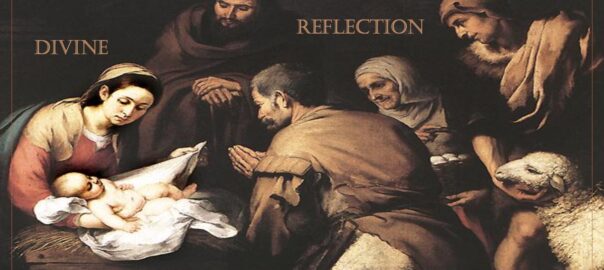Every person is more than their current job description or social role. God’s gifts and grace allows a new sociology as we discover deeper purpose than mere survival.
Being alive to God, emotionally healthy and enjoying healthy relationships are foundational to our sense of purpose and doing good work in the world.
Vocation in history and 21st century expression
The term “vocation” comes from the Latin, “vocare” – to call or receive a call. For almost two millennia in Christian-influenced communities and cultures, vocation referred to a religious calling: a monastic order, missionary work or parish labor. During the medieval era, vocation expanded beyond the clerical and embraced medicine (the doctor), the law (the attorney) and teaching (the professor/teacher). Other occupations were respected, but not given the same status.
The Reformation rekindled the priesthood of all believers (Exodus 19 and I Peter 2) and started honoring everyday work as a calling from God. Martin Luther’s delightful observation that Christian shoemaking is not about adding crosses to shoes but making good shoes was a breakthrough for workers in all classes. In most gospel-centered communities we are seeing better elevation and empowerment of all believers, without despising the important callings of those set apart by Christ to nourish the Body and make him known locally and globally (Ephesians 4).
Toward Clarity: Understanding Our Vocation(s)
With this context in mind, let’s define vocation and occupation – each in one sentence.
Vocation(s): General and specific callings from God that edify the Body, enhance the world and transcend current occupational assignments.
Occupation(s): Everyday labor for the glory of God and good of others that expresses our vocation(s) while not itself being the full expression of our callings.
A key text for integration: Colossians 3:17-24: Whatever our current role in the family or society, let’s do all for the glory of God as a servant of Christ.
All believers have three or four vocations – callings from God that supersede job descriptions, class, gender, race or national identity.
The first and greatest vocation is God’s calling to enter a relationship with the Triune Lord through Jesus Christ. This is the “general calling” to repentance and faith (Acts 2-3, Romans 10) unto salvation, with Spirit-infused faith, hope and love engendering security about identity and destiny (Romans 5-8). Obedience to this vocation begins with the Great Commandment of Jesus to love God with all our being and love our neighbors unselfishly as ourselves (Matthew 22, John 13-17). This vocation – our “first love” (Revelation 2) – is also demonstrated in obedience to the Great Commission as God’s people share their faith across the street and around the world (Matthew 28:18-20; Acts 1:8).
The second vocation consists of discovering and doing the “good works” designed by Jesus Christ for each believer (Ephesians 2:8-10; 3:3-10; 4:1-16). These works include our daily tasks but are more than job assignments. These works include discovering and expressing our gifts (Romans 12; I Corinthians 12-14; Ephesians 4; I Timothy 2) and wisely investing the resources our Lord has entrusted to us (Matthew 25). Some of these good works are found within Christian gatherings. Others are expressed in and through the public and private work done all day. Here is where integration of vocation and occupation occur. I may be called as an elder and teacher in my church. My daily job as a customer service manager will allow me to use my vocational gifts for the business while not allowing the business to define my life. Conversely, I am no less as elder, pastor, apostle or prophet if I sustain myself and my family with daily labor outside the largesse of the church!
A third area of vocation: God calls his people to specific domains that are part of God’s providential ordering of society, from labor to leadership, intellectual and cultural domains and all sorts of jobs. We should never rain on the parade of a believer excited about any kind of daily work! What we can do is expand their sense of calling while affirming the goodness of their daily work. People may discover this calling accidentally or deliberately learn about their field(s) of impact for God’s kingdom.
Quoting Christian thinker Francis Schaeffer, when we see God’s activity in all of life, there are “no little people” – only particular assignments. For example, there are people gifted with concrete artisan abilities and others with abstract intellectual gifts…and many with various combinations of desires and abilities. Shaping personal and family mission around God-given capacities (which can grow) and dreams makes life richer and more adaptable.
An aside: While awaiting the fullness of one’s calling or dream job, it is vital that women and men wake up each day and offer their work as worship. We are all more than our job title, but we never outgrow daily labor and serving people with excellence and integrity.
The fourth vocation is for married couples: God’s calling here includes covenant fidelity, shared mission and, if so blessed, the nurture of the next natural generation in the ways of God. Single women and men have advantages and challenges in their estate (I Corinthians 7) and married spouses must sacrifice for each other’s good (Ephesians 5:22-33). The biological family designed by the Creator is the norm for most. Today, this norm is now questioned, rejected and scorned by many, regardless of countless studies as well as biblical affirmation. For believers, marriage and family constitute a true vocation.
In sum, believers have four vocations or callings, even as (demonstrated below) they work at many occupations:
- Called to Christ and his kingdom and mission – making disciples
- Called to specific good works designed by God for the church and society
- Called to specific domains of influence for God’s glory and the good of the world
- If married, called to family fidelity; and if with children, called to nurture the next generation
The above order is not placing work over family or ministry over care for spouse or children – it is movement from general/universal vocations to more particular ones. These are not a list of priorities, but facets of a beautiful life God has designed.
Next week we will connect this detailed understanding of calling/vocation to our everyday work – and discover great peace!



